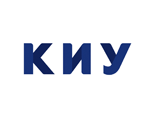 Дата публикации: 24 июня 2021
Дата публикации: 24 июня 2021
KIU students are translators at a foreign seminar
Not only to learn, but also to apply knowledge in practice: students of the 1st and 4th courses of the Linguistics direction worked as translators at a medical seminar of foreign specialists for two weeks.
The seminar was aimed at children with cerebral palsy, so our students carried out an important social mission in addition to translation. They worked in two shifts on a voluntary basis and translated "sessions" (sessions), the practical part when the wards do exercises. One can imagine what responsibility lay on our students, when the course of treatment of a patient depends on the accuracy and correctness of the translation!
The seminar was dedicated to BDA therapy, a biomechanical method of development and was organized by the Belgrade BDA Center. The event included three parts: lectures," assessment "(assessment), that is, an individual examination, and "sessions", practice.
The first two parts were translated by the head of the volunteer group of translators, a 4th-year student Aysel Jafarova. "Lectures are usually translated by the organizer – the person who has more experience, because medical translation is a dangerous type of translation. If the information received is transmitted incorrectly, the work plan for the next six months will change. Medical translations require a translator to be calm, to be able to hide emotions, because very often we have to translate cases when a family tells their situation, talks about the difficulties they had to face," says Aysel.
The girl herself has been engaged in medical translation since the second year and also started her career as a volunteer. Since last year, she has been leading a team of linguistics students, and she managed to prepare the children for the seminar on her own.
"Our student team has been translating for the BDA Center for more than 5 years. I started preparing the first-year students who came for the first time last year for transfer from October last year, and a month later, that is, in November, internists from Serbia arrived. I sent the guys all the material that I had collected independently for two years, told them what to expect and what is required of them. In addition, I drew the children's attention to how they will look, stand during the translation and communicate with families and doctors. Because you need not only a high-quality translation, but you need to behave correctly, be able to communicate with the speaker. The volunteer translators learned the necessary medical terminology, and there were no difficulties in translating. For five or six hours, they continuously translated, constantly communicated in English. In my opinion, this is a very good practice, " the fourth-year student shares.
Aysel herself admits that, thanks to her experience in the medical field, she translates lectures of Serbian doctors almost synchronously and fits in with the translation in much less time than is allotted according to the regulations.
In addition, students do audio-visual translation: they write subtitles for videos and voice them themselves.
"When doctors leave, I always gather my volunteers to get feedback from them. All the first-year students admitted that they really liked it, and they would like to continue doing interpretation. Next year I plan to take them again, " says Aysel.
Serbian doctors Slobodan Vujasic and Vlidimir Dobrievich together with their team conduct a seminar in thirteen countries and come twice a year to various cities of Russia. They highly appreciated the work of our students at the seminar and invited them to further participate, because, undoubtedly, the success of holding a foreign event largely depends on the quality of translation, the ability to convey information to the audience and the desire to promote international exchange and communication.
 ПРЕД
СЛЕД
ПРЕД
СЛЕД 


 Личный кабинет
Личный кабинет 




